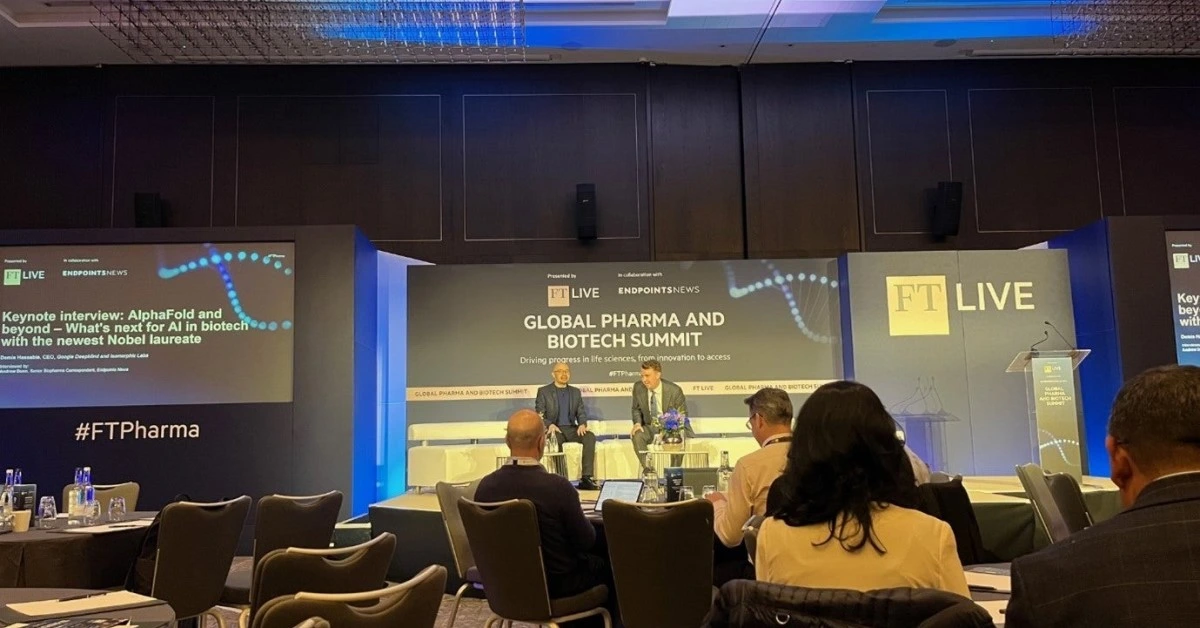
U.K. –Demis Hassabis, CEO and Co-Founder of Google DeepMind and Isomorphic Labs, discussed AI’s transformative potential in healthcare at the Financial Times Pharma and Biotech Summit in London on November 6.
He predicted that AI could have a more profound impact on society than the internet or mobile technology, comparing its future influence to that of electricity or fire.
In 2024, Hassabis and his team were awarded the Nobel Prize in Chemistry for their groundbreaking work with AlphaFold, an AI program developed by DeepMind.
AlphaFold has solved the 50-year-old problem of predicting protein structures, a critical breakthrough for understanding health and disease.
The program has already revolutionized molecular biology, helping researchers determine protein structures in minutes, a task that previously took years using traditional methods.
Proteins, which are made up of amino acids, fold into shapes essential for their function. AlphaFold, trained on X-ray crystallography data, predicts these complex protein structures at unprecedented speeds, with significant implications for drug discovery and treatment development.
Building on this success, Hassabis founded Isomorphic Labs in 2021 to apply AI to drug discovery.
The company focuses on algorithmic innovation rather than traditional wet labs, with Hassabis noting there is still untapped potential in existing data through advanced techniques like synthetic data generation.
Hassabis sees AI’s potential in finding cures for life-threatening diseases. “I can’t think of a better use case than using AI to try and find cures. What would be a better, more beneficial use of AI?” he posed, underscoring the life-changing possibilities of AI in medicine.
Strategic partnerships with pharma giants
In 2024, Isomorphic secured high-profile partnerships with major pharmaceutical companies, including Eli Lilly and Novartis, worth US $1.7bn and US $1.2bn, respectively.
While Hassabis declined to disclose specific details about these collaborations, he assured that “they are going extremely well,” signaling promising advancements in AI-driven drug discovery.
Addressing AI’s risks
While enthusiastic about AI’s potential, Hassabis also acknowledged the existential risks posed by advanced AI systems.
He called for robust research, evaluation, and regulatory frameworks to mitigate these risks. “It needs to be treated with a lot more humility and respect,” Hassabis remarked.
He called for collaboration between governments, civil society, and academia to create testing protocols and safety measures. “We need a lot more research on that,” he said.
Looking ahead, Hassabis shared an ambitious vision for the future of AI in healthcare. “My dream is to eventually have virtual cells, like a simulation of a virtual cell. We’re maybe ten years away from that,” he concluded.
XRP HEALTHCARE L.L.C | License Number: 2312867.01 | Dubai | © Copyright 2025 | All Rights Reserved